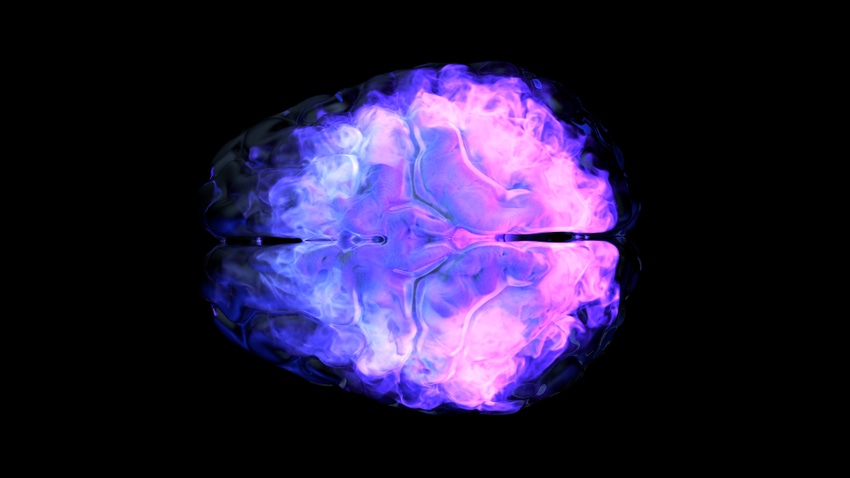Can AI Predict Alzheimer’s?
BrainSee uses artificial intelligence to help identify the likelihood of a patient’s progression to Alzheimer’s dementia.
January 29, 2024

At a Glance
- BrainSee’s AI algorithm reviews a patient’s brain MRI scan and identifies features related to neurodegeneration
- It then combines these features with the patient’s clinical data to identify neurodegeneration beyond normal aging
- The result is a "clinically useful prognostic insight" to aid doctors in assessment
Memory loss is a common concern of aging patients, but only half of those with mild cognitive impairment (MCI) progress to Alzheimer’s disease (AD) dementia within 5 years, explains Kaveh Vejdani, MD. The challenge lies in identifying those patients and starting the treatment that may help slow disease progression.
Vejdani hopes his company, Darmiyan Inc., can help. The company just earned De Novo classification from FDA for BrainSee, an AI-driven prognostic test for predicting the likelihood of a patient’s progression to AD-dementia. The automated software platform processes standard clinical brain MRI and cognitive assessments and generates an objective score that predicts the likelihood of progression from amnestic mild cognitive impairment (aMCI) to AD-dementia within 5 years. It is the first clinical application of Darmiyan's patented core proprietary technology.
AI plays a key role in the platform. “BrainSee’s AI algorithm first processes a patient’s brain MRI scan and extracts features (measurements) related to neurodegeneration,” Vejdani tells Design News. “It then combines these features with the patient’s clinical data (age, sex, and the standard cognitive and behavioral test scores) to distinguish clinically progressive neurodegeneration from normal aging. The output score (from 0 to 100) indicates how similar the patient’s data is to two groups of reference MCI patients: those who progressed to AD-dementia within 5 years versus those who did not progress to AD-dementia (i.e., remained stable or improved).
“Each feature (parameter) is assigned a measure of importance (weight), and all input parameters are combined into a weighted sum, which is then mathematically transformed into a number between 0 and 100,” Vejdani continues.
BrainSee “was trained and validated on several hundreds of real-world data from patients who were diagnosed with aMCI and were followed up clinically for at least 5 years,” he adds. “Some of these patients had progressed to AD-dementia within that time frame and some had not. BrainSee was trained to distinguish these two groups based on brain MRI and clinical data.”
The role of BrainSee is not to diagnose Alzheimer’s but to predict the likelihood of progressing from aMCI to Alzheimer's dementia. “It is still challenging to arrive at a clinical diagnosis, or a reliable prognosis, when considering brain MRI alone or clinical data alone,” says Vejdani. “However, when the two are combined in a unique way, and the importance (weight) of each single feature is determined by the AI, a clinically useful prognostic insight is generated, which can help the physician better assess the patient’s future cognitive health. The current clinical dilemma is not really whether the patient has Alzheimer’s pathology in their brain, but how likely they are to progress to dementia in the foreseeable future.”
![BrainSee_Technology_Summary[23].jpg BrainSee_Technology_Summary[23].jpg](https://eu-images.contentstack.com/v3/assets/blt0bbd1b20253587c0/blt124388aa044f2947/65b96df3ae0ab2040abb66fb/BrainSee_Technology_Summary[23].jpg?width=700&auto=webp&quality=80&disable=upscale)
A summary of the BrainSee technology. DARMIYAN
The cofounders of Darmiyan, which includes Vejdani along with CEO Dr. Padideh Kamali-Zare and Thomas Liebmann, PhD, were inspired to build BrainSee for a number of reasons. “BrainSee was inspired by countless stories of anxiety and helplessness of patients struggling with memory loss and MCI not knowing what actions to take and what’s coming next in their lives. We were heavily touched by these stories and wanted to leverage our expertise in science, medicine, and radiology to help improve these patients' lives,” Vejdani says.
“Padideh, Thomas, and I have known each other since 2014 from New York,” he continues. “Padideh was a research professor in computational neuroscience at NYU, Thomas was a postdoctoral researcher at Rockefeller University in the lab of the late Nobel laureate Prof. Paul Greengard, and I was a clinical fellow at NYU, specializing in PET/CT and PET/ MRI. The three of us teamed up to develop a novel technology for extracting key information about the brain non-invasively and then use that technology to build products that could solve clinical dilemmas and improve patients’ lives. Soon after brainstorming and running a clinical survey we realized that a non-invasive prognostic tool for MCI is the first thing that patients and clinicians badly want, and they need it urgently.”
The team also had a personal connection. “Padideh was the primary caregiver for a decade to her grandmother who suffered from MCI, which later progressed to Alzheimer dementia,” Vejdani shared. She was then inspired to pursue studies and research that would lead her to cofounding Darmiyan. (Read about Padideh’s personal story here.)
The Darmiyan team expects BrainSee “to become the standard of care in the evaluation of patients who struggle with the risks and challenges of memory loss, mild cognitive impairment, and Alzheimer’s disease,” Vejdani says.
As for AI in general, Vejdani expects “medical AI to become the strongest tool in the modern physician’s toolbox in the next few years. The human physician’s subjectivity and limited experience will be assisted, and their clinical judgment will be amplified and uplifted by medical AI’s objectivity and essentially unlimited experience.”
About the Author(s)
You May Also Like





